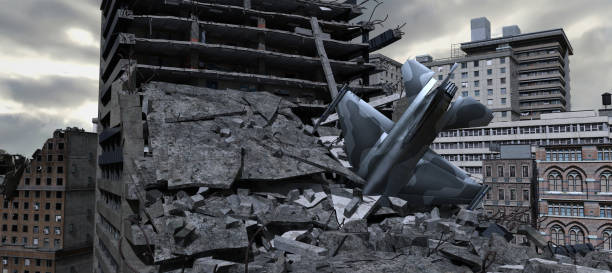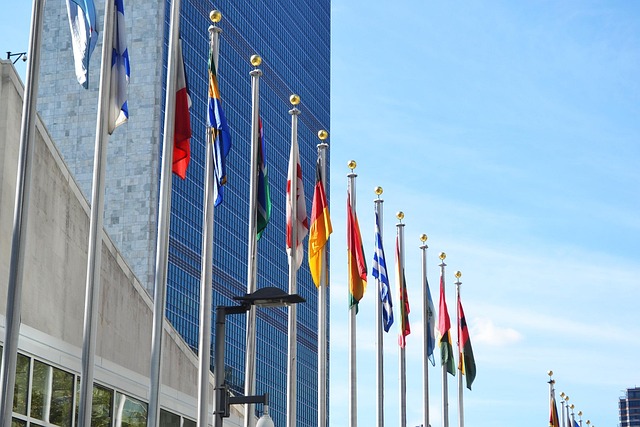1. Air Strike in Qatar: The Shocking Moment That Changed Everything
The air strike in Qatar sent shockwaves across the globe, marking a turning point in the modern history of Middle Eastern conflicts. In the early hours of the morning, as residents in Doha slept, missiles struck strategic targets near the capital. The unprecedented nature of this assault directly targeting Qatari soil has raised alarm among global powers. Unlike previous regional tensions that simmered behind closed doors, this strike was loud, bold, and designed to send a message. Qatar, long considered a hub of diplomacy and stability in the Gulf, now finds itself at the heart of a dangerous new era.
As the dust settled, the world asked: who dared to carry out an air strike in Qatar, and why? The answers remain murky, but intelligence agencies suggest involvement by a foreign power seeking to disrupt the delicate balance of power in the Gulf. The attack not only inflicted physical damage but also shook the region’s political and economic core. Markets reacted instantly, alliances were tested, and military responses loomed. For Qatar, the moment wasn’t just about destruction it was about transformation. The nation must now rethink its security strategies and prepare for an uncertain future, as global attention remains locked on its every move.
2. Why the Air Strike in Qatar Could Trigger a Global Crisis
The air strike in Qatar is more than just a local military incident it’s a potential trigger for a far-reaching global crisis. Qatar is not just another nation in the Gulf; it is a strategic energy provider, a diplomatic mediator, and a host to major Western military bases. Any direct assault on its infrastructure or sovereignty risks drawing in powerful allies and adversaries. With the strike targeting areas near international operations, tensions are already escalating among NATO allies, neighboring states, and economic stakeholders. This isn’t just Qatar’s crisis it could soon become the world’s.
If the situation escalates further, the air strike in Qatar could unravel years of fragile diplomacy in the Middle East. Countries like the United States, Turkey, and Iran have vested interests in the region, and a single miscalculation could lead to widespread conflict. Furthermore, energy markets are already feeling the tremors. Global oil and LNG prices have surged, stoking fears of inflation and supply chain disruptions. The geopolitical powder keg is primed, and the world is watching nervously. Whether this air strike was an isolated act or a signal of more to come, it has already shifted the global conversation from regional skirmishes to the possibility of a full-blown international confrontation.
3. Air Strike in Qatar: Secret Intelligence Reveals What Really Happened
In the wake of the air strike in Qatar, classified intelligence reports have begun to surface, shedding light on what may have truly happened behind the scenes. According to insider sources, the attack was not entirely unexpected. Surveillance data and intercepted communications reportedly warned of an imminent strike, yet Qatar’s defense systems were caught off guard. This has sparked questions about whether key information was ignored or suppressed. Some analysts believe the target was not just a military installation, but a symbolic blow aimed at disrupting Qatar’s role in regional diplomacy.
What’s more disturbing is the suggestion that the air strike in Qatar may have been part of a coordinated effort involving more than one foreign actor. Early findings indicate the use of high-precision weaponry, implying sophisticated planning and possibly insider intelligence. These revelations are fueling conspiracy theories and stirring political unrest within Qatar and beyond. If multiple states were involved or if there was a breach in Qatari national security it could permanently alter trust within international alliances. As these intelligence leaks continue to unfold, the world is realizing that this wasn’t just an act of war; it was a calculated message, wrapped in secrecy, that may have more layers than we yet understand.
4. How the Air Strike in Qatar Caught the World Off Guard
The air strike in Qatar came as a complete surprise to the international community. Unlike previous military tensions in the Middle East, which typically follow a predictable pattern of threats and warnings, this attack was swift and unannounced. Intelligence agencies, journalists, and even local defense analysts were blindsided. For years, Qatar has maintained an image of neutrality and diplomacy hosting global talks, facilitating humanitarian efforts, and acting as a bridge between rivals. That a country with such a reputation would suddenly be under siege sent shockwaves through diplomatic channels worldwide.
The suddenness of the air strike in Qatar has forced global powers to reevaluate their assumptions about regional stability. Nations that once viewed the Gulf as relatively stable are now reassessing their defense commitments and foreign policies. The strike also exposed vulnerabilities in Qatar’s air defense systems and raised questions about the effectiveness of international monitoring mechanisms. Could more have been done to prevent the attack? Was there a lapse in communication among global intelligence networks? These questions remain unanswered, but one thing is certain: the element of surprise has dramatically intensified the situation. The world was caught off guard, and the fallout from that moment continues to unfold on both political and military fronts.
5. Inside the Air Strike in Qatar: Exclusive Satellite Images and Analysis
As the world tries to comprehend the air strike in Qatar, newly released satellite images offer chilling insights into the precision and scale of the attack. High-resolution visuals show significant damage to military installations, communication centers, and suspected intelligence facilities. Some of the most striking images reveal large impact craters near Doha’s outskirts suggesting advanced targeting systems and carefully selected objectives. Military analysts have begun dissecting these visuals to understand the strategy behind the strike, and what it tells us about the attackers’ intentions.
What the images don’t show, however, is equally important. The air strike in Qatar left certain high-value areas untouched, suggesting the strike was more symbolic than entirely destructive. Experts believe the chosen targets were meant to disrupt specific military functions while avoiding civilian casualties calculated move to send a powerful message without provoking immediate retaliation. But this restraint has only deepened the mystery. Who would benefit from such a surgical strike? Was this a warning shot or the beginning of a long campaign? As more data is analyzed, one thing is clear: the imagery tells a story of calculated aggression, designed to destabilize Qatar without tipping the region into immediate chaos.
6. Air Strike in Qatar: A Wake-Up Call for Middle East Peace?
For many observers, the air strike in Qatar could serve as a grim but necessary wake-up call for renewed peace efforts in the Middle East. The region has long been plagued by cycles of conflict, political rivalries, and foreign intervention. Qatar’s diplomatic efforts often acting as a neutral mediator have previously helped de-escalate regional crises. But now that the country itself is under direct attack, there’s a growing sense that the old rules of engagement are breaking down. This event may force regional leaders to reconsider their strategies and seek long-term diplomatic solutions.
The air strike in Qatar has also sparked renewed discussions among international organizations like the United Nations and the Gulf Cooperation Council. Peace-building initiatives, once sidelined or stalled, are regaining attention amid fears of wider regional instability. While the attack is a tragedy, it could also be a turning point if world leaders choose dialogue over escalation. Some see this moment as an opportunity to broker new treaties, revisit defense agreements, and prioritize conflict prevention across the Gulf. Whether Qatar’s suffering can be transformed into meaningful change remains to be seen, but the urgency for peace has never felt more real or more necessary.
7. Who Benefits from the Air Strike in Qatar? The Dark Politics Behind the Attack
The air strike in Qatar has prompted a critical question: who actually benefits from this aggressive act? While the damage was physical and emotional for Qatar, someone somewhere may have gained strategically or politically. Analysts suggest that destabilizing Qatar could serve the interests of rival regional powers that oppose its growing influence in diplomacy and energy markets. As one of the world’s largest exporters of liquefied natural gas (LNG), Qatar holds significant economic power. A direct attack could be aimed at shifting market dynamics or altering regional allegiances.
There’s also a darker political layer to the air strike in Qatar. Some observers believe the assault could be part of a covert strategy to sabotage peace efforts in the Middle East. By hitting a nation known for hosting peace talks and acting as a diplomatic broker, the strike could derail ongoing negotiations between warring factions across the region. Furthermore, it may serve as a warning to other small nations that seek an independent foreign policy. In a region where proxy conflicts and backdoor alliances are common, determining who truly benefits from the chaos is difficult but vital. As investigations deepen, the web of motives behind this strike is proving to be as complex as the conflict itself.
8. Air Strike in Qatar: Is This the Beginning of World War III?
The air strike in Qatar has led some analysts and media outlets to ask a chilling question: could this be the spark that ignites World War III? While that may seem extreme, the ingredients for a large-scale conflict are alarmingly present. The Middle East is a geopolitical tinderbox where small incidents can rapidly escalate into global crises. Qatar’s strategic importance, its alliances with major military powers, and its control over critical energy routes mean that any aggression on its soil risks drawing in powerful nations. One miscalculation, one retaliatory strike too many, and the conflict could spiral beyond control.
The possibility of a broader war hinges on how international players respond to the air strike in Qatar. The United States maintains a large military presence at Al Udeid Air Base, just outside Doha. An attack near such facilities is not only a provocation to Qatar but to the U.S. itself. Meanwhile, Iran, Turkey, and Gulf rivals are closely watching and preparing their next moves. The fear is not just another regional war, but a conflict that could draw in NATO, Russia, and others into a complex web of retaliation and alliances. It’s a worst-case scenario, but in the current climate, no longer unthinkable.
9. The Air Strike in Qatar: What the Media Isn’t Telling You
While headlines around the world have covered the air strike in Qatar, many believe the full story remains untold. Mainstream media often focuses on the immediate facts what was hit, who might be responsible, and what comes next. But beneath the surface lies a deeper narrative involving political agendas, intelligence leaks, and strategic misinformation. Some reports suggest that certain media outlets are downplaying the severity of the attack to avoid sparking panic or market turmoil. Others are accused of echoing government-approved narratives without questioning inconsistencies.
Digging deeper into the air strike in Qatar, independent journalists and whistleblowers are raising questions about what really happened and why. Was the attack an inside job, or were foreign intelligence agencies complicit? Why were key locations left untouched? Why were certain early warnings ignored? These are the kinds of questions that often go unasked in traditional coverage. Social media has become a battleground of conflicting reports, eyewitness videos, and conspiracy theories. While not all claims are credible, the thirst for the truth is growing. In a world where information is power, what’s being omitted may be just as telling as what’s being reported and the real story may still be unfolding behind closed doors.
10. Air Strike in Qatar Sparks Massive Protests Across the Region
In the days following the air strike in Qatar, a wave of outrage swept across the Middle East, triggering mass protests in several countries. From the streets of Istanbul to the plazas of Beirut and the capitals of North Africa, thousands of demonstrators took to the streets to express solidarity with Qatar and condemn the use of military aggression. Many of the protests were peaceful, but some turned violent, with clashes between demonstrators and security forces reported in key cities. The air strike has struck a nerve, reigniting long-standing tensions between governments and their populations.
The air strike in Qatar has become more than a geopolitical event it has transformed into a symbol of regional injustice and rising instability. Protesters are not only rallying against the attackers but also against their own governments’ silence or complicity. Many accuse their leaders of prioritizing foreign alliances over national and regional interests. The incident has reinvigorated political activism, particularly among youth who see Qatar’s fate as a warning for their own future. Social media is amplifying these voices, making the protests impossible to ignore. As the anger spreads, it’s clear that the air strike didn’t just hit Qatar—it ignited a broader call for accountability and change.
11. Air Strike in Qatar: How Safe Is the Gulf Region Now?
The air strike in Qatar has thrown the entire Gulf region into a state of heightened alert. Countries like the United Arab Emirates, Saudi Arabia, Bahrain, and Kuwait are now reassessing their security postures, reinforcing military bases, and tightening airspace monitoring. Civil aviation authorities have issued warnings, and some airlines have even diverted routes away from Qatari airspace. The sense of vulnerability is palpable not just in Qatar but across the Gulf Cooperation Council (GCC). Citizens and expatriates alike are questioning how safe the region really is.
For years, the Gulf was considered a relatively stable corner of the Middle East, thanks in large part to the diplomatic efforts and security collaborations between member states. But the air strike in Qatar has exposed gaps in regional defense systems and intelligence-sharing networks. The incident has led to urgent meetings among GCC members, with discussions on joint military responses, intelligence pooling, and even missile defense upgrades. While the region may not yet be at war, the psychological impact of the strike has already changed the security landscape. People are nervous, governments are reactive, and the idea of “safety” in the Gulf is being redefined in real time.
12. Air Strike in Qatar Disrupts Global Trade Routes What It Means for You
The air strike in Qatar may have taken place thousands of miles away from major economic centers, but its impact is already being felt across the globe. As one of the world’s top exporters of liquefied natural gas (LNG), any disruption in Qatar’s operations can send energy markets into a frenzy. Within hours of the attack, global oil and gas prices surged, causing a ripple effect on fuel costs, electricity rates, and shipping fees. The Strait of Hormuz through which a significant portion of the world’s oil flows is now being closely monitored for signs of military escalation.
Beyond energy, the air strike in Qatar is affecting global trade routes and supply chains. Shipping companies are reevaluating routes that pass near the Gulf, leading to delays in delivery of goods and increased insurance costs. Air cargo traffic has also been disrupted due to flight restrictions and safety concerns in the region. Businesses reliant on imports from the Middle East whether tech companies sourcing components or retailers awaiting shipments are bracing for impact. For consumers, this could mean higher prices at the pump, longer wait times for online orders, and inflation in everyday goods. A single air strike has proven just how interconnected the global economy truly is.





2 Comments